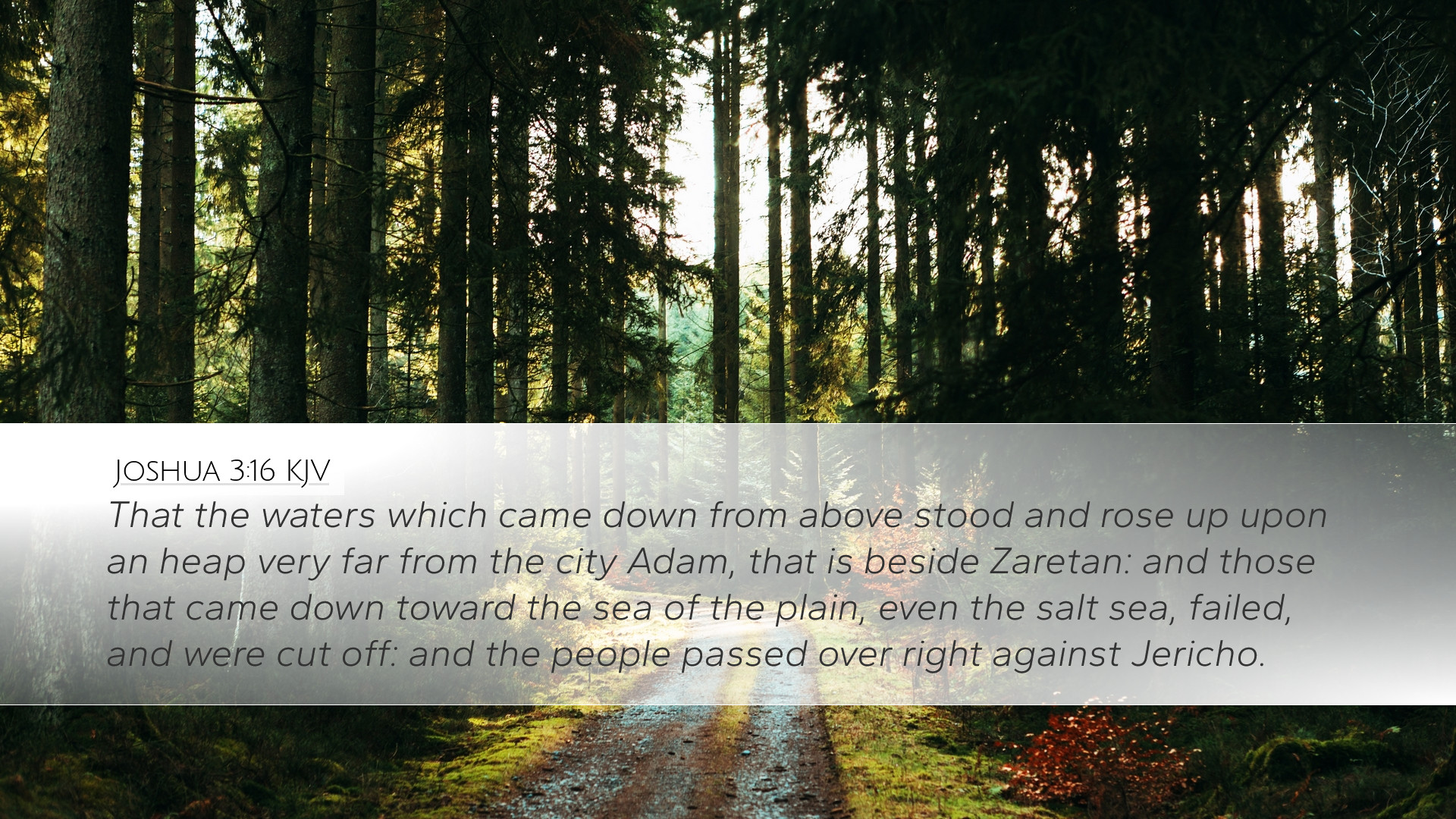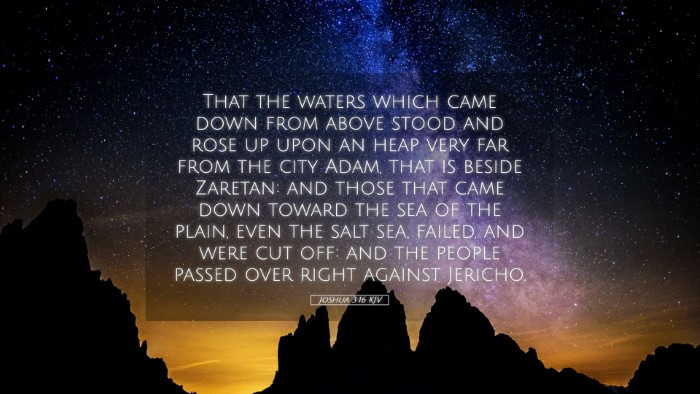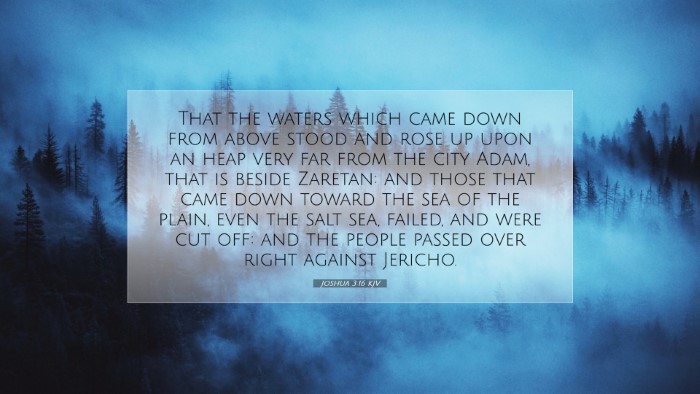Old Testament
Genesis Exodus Leviticus Numbers Deuteronomy Joshua Judges Ruth 1 Samuel 2 Samuel 1 Kings 2 Kings 1 Chronicles 2 Chronicles Ezra Nehemiah Esther Job Psalms Proverbs Ecclesiastes Song of Solomon Isaiah Jeremiah Lamentations Ezekiel Daniel Hosea Joel Amos Obadiah Jonah Micah Nahum Habakkuk Zephaniah Haggai Zechariah MalachiJoshua 3:16
Joshua 3:16 KJV
That the waters which came down from above stood and rose up upon an heap very far from the city Adam, that is beside Zaretan: and those that came down toward the sea of the plain, even the salt sea, failed, and were cut off: and the people passed over right against Jericho.
Joshua 3:16 Bible Commentary
Commentary on Joshua 3:16
Joshua 3:16 states: "That the waters which came down from above stood and rose up upon an heap very far from the city Adam, that is beside Zaretan: and those that came down toward the sea of the plain, even the salt sea, failed, and were cut off: and the people passed over right against Jericho."
Introduction
This verse marks a pivotal moment in the history of Israel as they cross the Jordan River into the Promised Land. The miraculous parting of the waters signifies God's faithfulness to His covenant promises and represents a transition in God's plan for His people. Public domain commentaries give us various perspectives on this scripture, elucidating its theological significance and practical applications.
Theological Significance
Several key theological themes emerge from this passage:
- Divine Intervention: The parting of the Jordan River parallels the crossing of the Red Sea, highlighting God's power to liberate and lead His people (Matthew Henry).
- Faith and Obedience: The crossing exemplifies the importance of faith in God’s promises. The priests stepped into the water, illustrating the necessity of obedience in experiencing God's miraculous works (Albert Barnes).
- Symbolism of Water: Water in biblical texts often symbolizes life, cleansing, and salvation. Here, it shows the barrier of the Jordan being removed for the advancement of God's people (Adam Clarke).
Contextual Overview
In the context of Joshua chapters 1-3, we see a God preparing His people for a new phase in their journey. Following forty years in the wilderness, Israel is on the verge of entering a land promised to Abraham, Isaac, and Jacob. This transition underscores the concept of God's faithfulness and the preparation necessary for spiritual inheritance.
Verse Breakdown
Let's explore the components of Joshua 3:16 more closely:
- "The waters... stood and rose up upon an heap": This imagery is reminiscent of God's sovereignty over natural elements. The heavens themselves obey His command, signalling His majestic authority (Matthew Henry).
- "very far from the city Adam": The mention of Adam signifies not just a geographical location, but points to humanity's origin and perhaps foreshadows the new identity God's people are to embrace (Albert Barnes).
- "subjects of the Salt Sea": The salt sea, or Dead Sea, represents a dead and unfruitful territory. The Israelites’ crossing into the Promised Land symbolizes moving away from barrenness towards life and promise (Adam Clarke).
Practical Applications
This passage offers several lessons for contemporary believers:
- Trust in God: Just as the Israelites had to step into the water before the miracle occurred, so must believers take steps of faith in their lives. Trust in God often necessitates action and stepping into the unknown (Albert Barnes).
- Recognition of God’s Power: Understanding that it is God who parts the waters not only for Israel but for His people today, serves to bolster our faith in His ongoing provision and support (Matthew Henry).
- Community and Journey: The collective experience of Israel highlights the importance of community in our spiritual journeys. Each individual's faith contributes to the group’s progress (Adam Clarke).
Conclusion
Joshua 3:16 serves as a powerful reminder of God’s faithfulness, power, and the need for human cooperation in the divine plan. As we reflect on this passage, let us consider how the Israelites’ experience informs our own faith journeys. In trusting God's promises and recognizing His miraculous workings in our lives, we are encouraged to act and move forward with hope and assurance.


